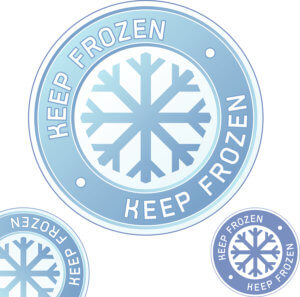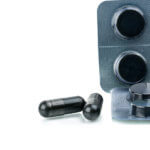
The market of frozen foods is worth about ten billion dollars and more by the end of this decade. The global frozen meals market was worth two hundred and thirty billion two years ago. The rise in popularity of frozen meals is growing health concerns among the young and the aging. From frozen fries to ready to cook meals, almost most American meals are frozen. Frozen meals are not your best friend, even though they are your most convenient ally.

A distinction should be drawn between frozen foods and frozen meals. Frozen foods are fruits and vegetables in the natural form. These are put in a blast freezer that leads to the crystallization of the fluids inside. Many such frozen fruits and vegetables are treated with preservatives but within an acceptable limit and most of the chemicals are well regulated by the food and drug administration. While you may still consider frozen foods to be safe and it is also a necessity when you imagine the scale of global shipping of perishable goods, frozen meals are a completely different story. Frozen meals are not raw foods in their natural form. They are processed and often cooked to varying extents so they can be unpacked and heated up before they are ready to be eaten. Such frozen meals are a health hazard. It is not only better but imperative for people to eat fresh foods, even if that means eating seasonal produce and what is locally sourced.

- One of the most common side effects of frozen meals is diabetes. While one type of diabetes is genetic, the other is a lifestyle disease. It is an acquired condition that develops in due course of time. Diabetes has been on the rise for decades now. While sedentary lifestyle and overeating coupled with obesity are to be blamed, frozen meals or choice of food cannot be completely discounted. Frozen meals contain more starch than fresh foods. The addition starch keeps frozen foods in a relatively fresh condition. The chain of glucose also makes the frozen meals tastier and the textures are also more desirable. This starch or glucose is converted to sugar before you can digest the food or meals. There is an instant spike in the level of sugar in your blood. Daily or routine consumption of frozen meals has been associated with diabetes.
- Frozen meals have trans fats. This is the worst kind of fat there is. Trans fats cause various types of cardiovascular diseases. You may suffer from heart disease. Your arteries will get clogged in due course of time if you do not stop consuming trans fats. You will witness a sharp rise in the level of bad cholesterol, also referred to as LDL. The good cholesterol or HDL will suffer. Since most frozen meals also contain excess salt, there is a double impact on your heart and arteries. Your blood pressure will remain high. Your health will only worsen with high blood sugar and high bad cholesterol.

- Frozen meals contain an excess of many unhealthy components, from salt to trans fats, starch to chemicals. These cause a change in your body at a cellular level. Frozen meals can cause or facilitate pancreatic cancer. Studies have been conducted exploring the causal relationship. One such study has found that frozen hot dogs & sausages can increase the risk of cancer by over sixty five percent. Not all frozen meals contain carcinogens but many do. Corn syrup, a common preservative used in frozen meals, is basically glucose. Such preservatives contain carcinogenic elements. Acrylamide is a substance found in many types of cooked frozen meals, the ones that are marketed as ready to eat or ready to cook but for only a bit. Acrylamide has some carcinogenic properties.
- Frozen meals contain a plethora of preservatives, additives, stabilizing agents, artificial flavors and monosodium glutamate among others. Most of these ingredients have a plethora of side effects. What may come as a shock for many consumers, there are preservatives and chemicals being used in some types of frozen meals that are yet to be fully tested for their long term effects. The industry has been trying to make their products more viable and sustainable, from the commercial perspective. Companies are trying to make their products tastier but without adding real foods. They are aiming for an increased shelf life. To achieve their purposes, companies are investing a lot of money into researching and developing new artificial compounds or ingredients that serve their goals. The regulatory authorities are not as steadfast as one would like them to be. Hence, they are often found reacting to a shocking revelation than being proactively on top of things and effectively protecting people from consuming frozen meals that pose serious health risks.




Comments
Loading…